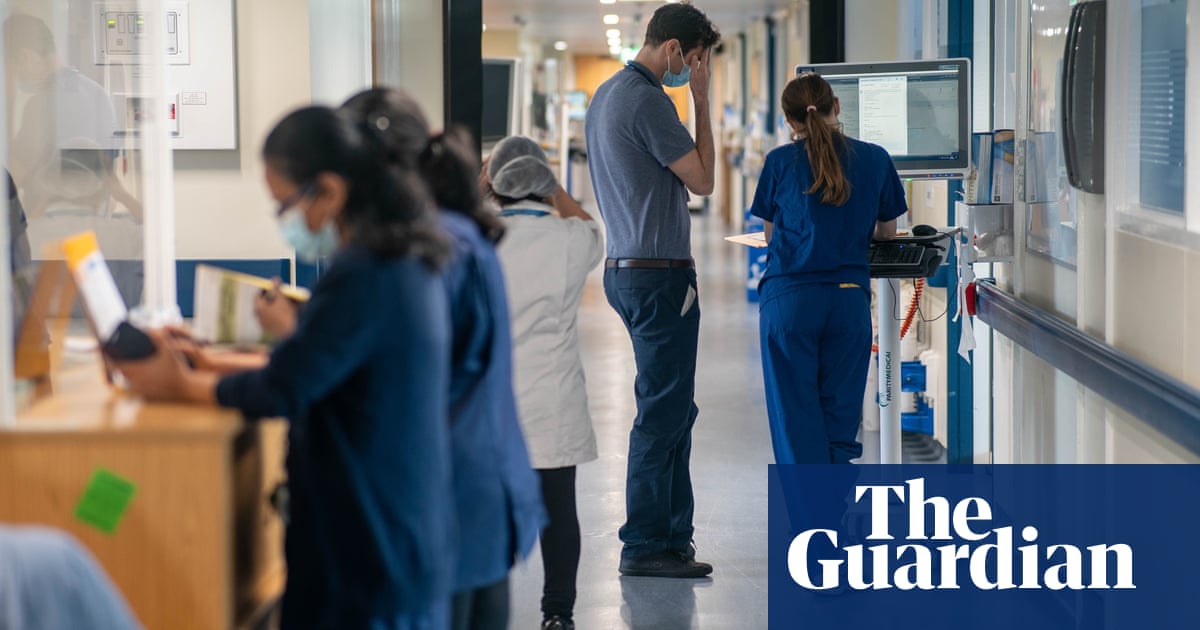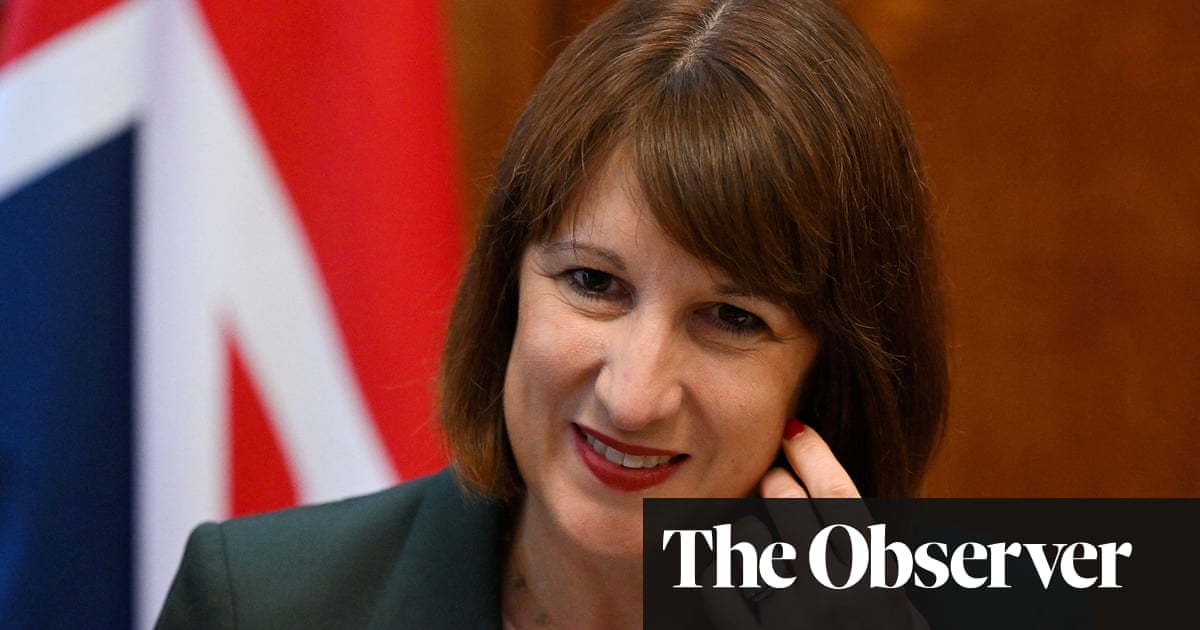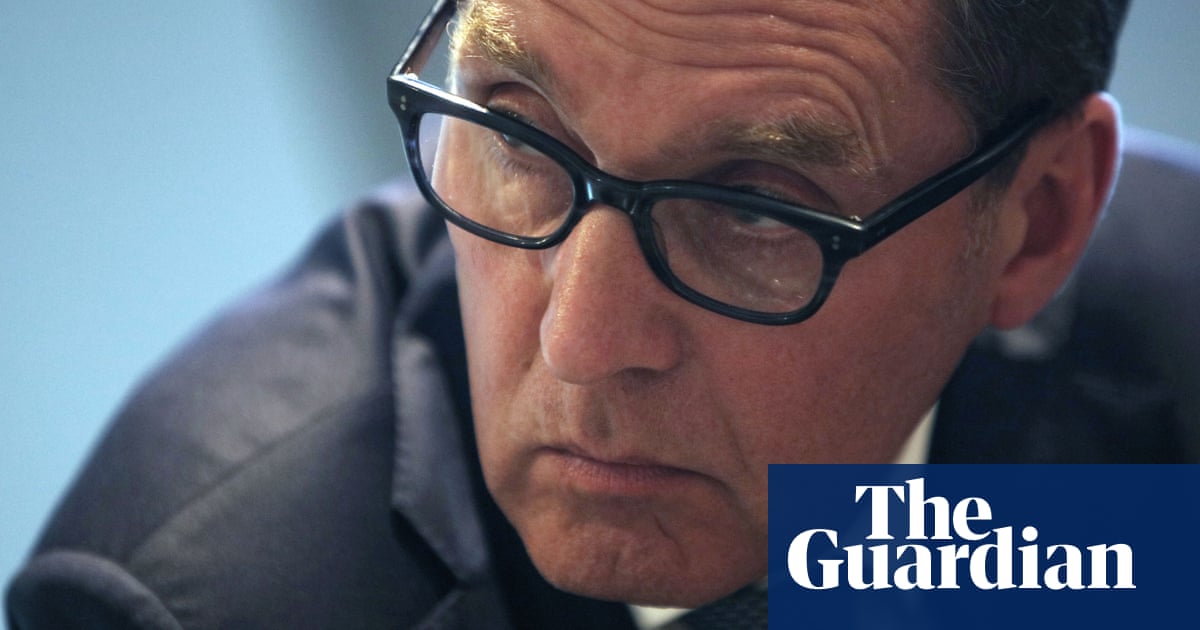Cowper’s Cut 345: “Oh, reason not the demand!”

‘King Lear’ is not one of the worst of Shakespeare’s tragedies. As the King begins to regret dividing and giving away his kingdom, his unloving recipient elder two daughters compete with one another in a Dutch auction to reduce the retinue of knights accompanying their abdicated father. To the question “what need, my Lord, of one?” (retained knight), Lear shoots back “oh, reason not the need!”
As smart people in healthcare know, needs and demands are not the same thing. This feels pertinent, as we enter the ‘phony war’ advent period of the Budget on 30 October. The various leaks, some of which are discussed below, have an obvious cumulative aim of Tory-blaming and of inducing relief when not every one of the politically-possible taxes remaining in play gets hiked to the maximum.
Meanwhile, the latest NHS Estates Return Information Collection provisional data finds that the cost of eradicating the estates maintenance backlog for NHS trusts rose around 20 per cent to a new record high of nearly £14 billion. It also shows that three central London trusts (Imperial College Healthcare Trust, Guy’s and St Thomas’ Foundation Trust, and Barts Health Trust) made up over 10 per cent of the total NHS trust backlog figure.
The proportion of the backlog considered “critical” risk has also risen to the highest level in the last decade, now at 56 per cent of the total. This includes £2.7 million of outstanding work considered “high” risk. Health Service Journal reported this here.
NHS England chair Richard Meddings quits
No big acrimony, however - Streeting has thanks Meddings for his contribution and support
— Dave West (@Davewwest) October 17, 2024
story from @mimilaunder pic.twitter.com/7IuqEB3qMx
HSJ’s Mimi Launder broke the news of NHS England chair Richard Meddings’ departure at the end of March 2025: a decision reached following Mr Meddings’ conversations with Health But Social Care Secretary Wes Streeting.
SOS Streeting and Mr Meddings’ exchange of letters about the resignation are (in order of sending) respectively here and here.
In this correspondence, Meddings tells Streeting, “following the recent discussion that you and I had, I have reflected on what the NHS and social care will need to make the shift to prevention, primary and community care a reality. I accept that you would benefit from someone who has significant experience in health, who can complement Amanda’s skills. Having thought further on our conversation, and as I approach almost three years in the role, I have therefore concluded that now is the right time for me to offer to stand down as chair.”
Streeting replies, “You have led the organisation through a period of significant internal change and unprecedented external challenges and have done so with the greatest dedication and integrity. From all of our conversations that we have had your commitment to the role has been evident.
“Your tenure has also fulfilled the essential criteria of leadership: you leave the organisation in better shape than you found it. You have overseen the merger of NHS Improvement, NHS Digital and Health Education England. You have reduced central headcount by a third, cut bureaucracy and freed up millions of pounds for patient care at the same time as overseeing the formal establishment of Integrated Care Boards. You have also embraced technology and innovation that has the potential to revolutionise care in the 21st century.
“It is a testament to your character that throughout all of that change and upheaval, those who have benefited from your leadership and stewardship of NHS England speak with warmth, affection and gratitude for the way in which you have supported them to meet these challenges.”
Streeting also asserts that “we are in agreement about the need for a chair with
significant experience in health to lead the radical shift the Government wants to see from hospital to primary and community care and greater devolution of power and control from the centre”.
There is pungent irony here: Mr Meddings was a Conservative appointee and The Guardian was briefed about his departure before the election, speculating that Jacqui Smith (now in the Lords for education), Sally Morgan and Alan Milburn were the likely replacement front-runners.
While not doing so explicitly, Mr Streeting has in practice further emphasised the extent of his control over the NHS. This is quite the inverse of his stated aim of “greater devolution of power and control from the centre”.
It’s well-established that Mr Meddings made fairly robust efforts to stand up to various pieces of proposed political nonsense from Steve Barclay and Victoria Atkins during their tenures as SOS. Of course, neither of those individuals had either the political capital nor the credible replacement candidates to get rid of Mr Meddings, so he stayed on for as long as it suited him - and of course, as long as it suited Mr Streeting.
Who’s next

Who’s next as NHS chair?
There have been only a few to date: Chairman Mal; Lord David Prior; and now Richard Meddings. On AI pattern recognition grounds, we’d have to say that a Caucasian male must be in the box seat.
It’s not a very welcoming gig, just presently. The calibre of NHS England chief executive Amanda Pritchard’s leadership is an open cause of discontent widely in and around the service: it is not only being critiqued in these columns. A clear example: the discussion in the Meddings-Streeting correspondence about how best to support Ms Pritchard is one that simply would neither have arisen nor been countenanced about either of her predecessors in the role, David Nicholson or Simon Stevens.
Both men’s names will probably be widely put into the frame of possible chairs. I’d put Simon Stevens into the ‘could do it, but wouldn’t want to’ category.
David Nicholson’s return to the NHS fray after having been the inaugural independent chief executive, to chair several trusts with no small degree of challenges, may make people think that he’d be up for it. I claim no personal knowledge, and just observe that the many positives of experience and perspective that he could bring will be counterbalanced by his understanding that it’d be challenging for him to be chair while his wife Sarah-Jane Marsh remains an executive director of NHSE.
The AmanadaCHINO adaptation
We need, of course, to ask ourselves what the job of NHS England chair in April 2025 is actually to do.
Probably the main roles of the new NHSE chair will be to get along with the real NHS chief executive. That is Wes Streeting: nominal NHSE boss Amanda Pritchard is a CHINO (chief executive in name only).
Wes is Number One so why try harder?
This tangentially raises the issue of the durability of an independent NHS England. We don’t yet know what’s going to be in next spring’s NHS 10-Year Plan, but the question arises as to what is NHSE’s unique contribution in a situation of high demand, no actual plan and certainty only over constrained funding.
It feels very much as if NHSE continues to exist in theory, but not in practice.
A molasses-sticky wicket
At present, the conditions likely to lead to medium-term chances of success are not there; nor is it obvious that they are coming.
So there are individual characters who in better circumstances could add a lot of value as NHSE chair: Robert Naylor, Mark Britnell, Julie Moore - and indeed other people who weren’t chief executives of University Hospitals Birmingham back when it was highly successful.
Ex-NHSE NED and Confed chair Professor The Lord Victor Adebowale, Commander of the British Empire, could also be a good candidate. From the point of view of getting someone in who’s seen the light on NHSE’s and the wider service’s huge culture/anthropology needs, Nuffield Trust chief executive Thea Stein could do useful things.
Another former NHSE NED, ex-Macmillan chief executive Ciaran Devane went on to do impressive work at the British Council, and latterly as chair of the Health Service Executive in Ireland. That’s pretty directly relevant experience.
But my suspicion is that all of these people are bright and savvy enough to regard the chair job as a hospital pass, in the current circumstances.
The name that is being widely mentioned as a Labour-favoured candidate is that of Dr Penny Dash, recent reviewer of the CQC and chair of North-West London Integrated Care Board. Penny is certainly very able: she is also very McKinseys since her 12 years working there as a partner.
And if that doesn’t work out, there’s always Alan. (No, not Milburn.)
Mr Bojangles rides again

This is becoming tedious. In the sitzkrieg of pre-Budget media briefings, The Guardian ran an NHS funding boost (begging-bowl) feature that was very obviously briefed to them by NHS England’s director of [coughs] ‘strategy’ [/coughs], Chris Hopson.
It’s starting to feel like I’ve got competition from the man whom I taught to use Kiss (formerly Twitter) in the field of regular health policy and politics commentary, and that will never do. Monopsony, innit? Not to mention demarcation!
How am I so sure that this is Chris (apart from the fact that ‘anonymously’ briefing the nationals is just what he does, mostly behind his director of communications’ back)?
Look at the language. The classic Hopsonism of “a landing strip” is prominent in the piece. Likewise, the line that “NHS chiefs are privately raising the alarm over the plans”; and the line that NHS leaders would not publicly “be churlish about it”. That is all very him: particularly the confidence about predicting how NHS leaders will respond.

A rather more credible polling-based briefing from Labour-linked think tank Labour Together told The Observer that Chancellor Rachel Reeves plans to increase employer NI contributions to provide an NHS funding boost. Ironically, this NI hike will hit the NHS fairly hard: it’s a big employer.
Alan Milburn to be DHBSC lead NED?

It seems that Wes Streeting may be about to make a honest woman of Alan Milburn. The Guardian reports on speculation that Alan Milburn will be appointed as the Department For Health But Social Care’s lead non-executive director.

You can read about the roles and responsibilities of DHBSC NEDs here. The application process states that “The Board’s role is to bring independent advice, support and challenge to the Executive Team to help shape the Department’s work, particularly in terms of delivery.
“All non-executives are also expected to contribute to the work of the Department in the following areas:
- Independence: provide an independent perspective and assurance, including in advising the Permanent Secretary on the capability of the Department
- Strategy: constructively challenge and contribute to the development of the Department’s strategy and business plan, including the setting and development of key objectives and targets
- Performance: scrutinise the performance of the Department in meeting agreed goals and objectives, including financial targets, and work with senior officials to continue to improve Departmental performance
- People: offer mentoring, support and guidance to senior leaders in the department, and support delivery of the Department’s wider People strategy
- Governance: ensure governance, internal control and risk management systems are effective, and deliver relevant, accurate and timely management and financial information to the Board
- Support the Board to help it engage with strategic issues in ways which have practical resonance
- Connect the Board to people and organisations who can provide different perspectives and expertise to help the Department deliver its responsibilities
- Expertise: bring expertise and experience in key areas of work, to support and supplement skills and experience brought by fellow non-executives.”
Mmmmmmmmm.
NHS England’s strategically opaque vision

Only a third of NHS England staff think the organisation has a clear vision, Health Service Journal reports that its new annual staff survey has shown. I am astonished that the number is so high.
Among NHSE staff’s lowest-rated directorates were strategy (including communications); vaccination and screening; and operations. Thank goodness it’s nothing important that their own workforce think is going badly. Given some of the attempts as ‘comms-ing it’ that I have highlighted in recent columns, the fact of strategy being found on the naughty step is particularly unsurprising. Certain individuals are a lot less subtle than they think they are.
NHSE’s official quote given to HSJ is golden: “this year’s results should be considered against the backdrop of ongoing organisational change, which can significantly impact staff engagement levels and decreased morale.
“Independent feedback from our survey providers indicates that the results are not as challenging as could be expected, given the scale and complexity of NHSE’s change programme.”
Recommended and required reading
The Financial Times covers the NHS’s struggles with outdated tech.
The FT also reports on the government’s new Regulatory Innovation Office (RIO), modelled on the UK’s Covid Vaccine Taskforce. RIO aims to inform the government of regulatory barriers to innovation and set new priorities for watchdogs, then helping those bodies to update regulation, speed up approvals and work more closely together.
The Guardian spotted that Care UK (one of Britain’s largest care home chains) has been sold to Welltower, a US real-estate investment trust (REIT) that specialises in care homes.
The Times reports that the FDA has approved CMR Surgical’s Vesuvius surgical robot system for sale in the USA.
Launching the Obesity Health Alliance’s “Treatment of Overweight and Obesity Position Statement & Evidence Review”, over 200 NHS healthcare professionals have written to the Health and Social Care Secretary Wes Streeting MP calling for an urgent comprehensive review of treatment services across England, in response to longstanding issues and an unprecedented public demand for new pharmaceutical treatments.
The Guardian’s Polly Toynbee tries to stiffen the government’s resolve over use of the private sector, noting that the British Chambers of Commerce have been lobbying for employers to get private health insurance tax breaks.
Health Secretary Wes Streeting’s Boris Johnson Fanzine op-ed on the Eli Lilly weight loss drugs deal. So imagine my surprise just a few days later to see Eli Lilly UK general manager Chris Stokes using the Sunday Times to tell the UK government to buy even more of their drugs: NICE is bad, apparently.
Team Streeting has briefed the BJF that smartwatches and wearable tech will save the NHS. Thank goodness that the resultant diagnostic findings won’t create any more demand, or need.
Geriatrician Professor Martin Vernon, who developed the ‘Ageing Well’ long-term plan proposals as NHS England’s national clinical director from 2016 to 2019, told HSJ that NHSE’s cuts to the ‘Ageing Well’ programme budget were catastrophic: “the fact that these plans were largely defunded and badly implemented must now be a source of national shame”.
Ex-PM David Cameron’s Times op-ed on Britain’s opportunity of becoming a leader in treating rare diseases.
The FT covers a new NHS Confederation discussion paper trying to push the Government towards using wholly unspecified PFIish methods to fund the NHS capital backlog, while acknowledging that trad Treasury funding is the best method. Wonderfully clear …
I’ve often mentioned my conflict of interest over my paid role on the now-disbanded Palantir Health Advisory Panel, in association with the company’s successful bid on the NHSE Federated Data Platform contract. This reflection by a former Palantir staffer on his time working there is actually worth a read.
Confed boss Matthew Taylor’s HSJ interview finds him a convert to the case for more money.


